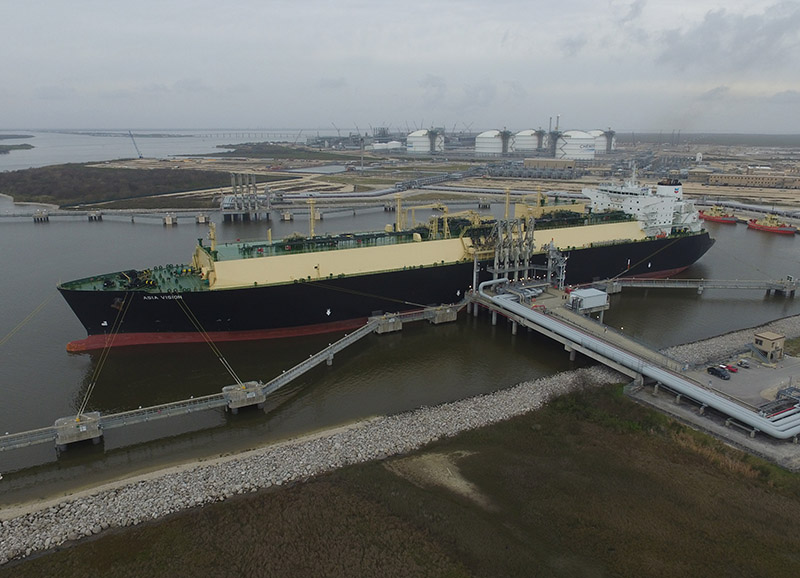(Bloomberg) — Add South Korea to the growing list of regulars buying America’s shale gas.
Cheniere Energy Inc., the sole exporter of liquefied natural gas from U.S. shale basins, commenced a 20-year supply agreement with Korea Gas Corp. at a ceremony in Louisiana on Sunday. Under the deal originally signed in 2012, Cheniere will make available for delivery about 3.5 million tons of the supercooled fuel annually to South Korea, the world’s second-biggest buyer last year, representing at least $548 million of revenue per year.
Just last year, the first cargo of LNG from the lower 48 states sailed from Cheniere’s Sabine Pass terminal in Louisiana. Now, buyers including South Korea, Mexico, Chile and Japan have set the U.S. on a path to becoming a net gas exporter for the first time in decades. As the surge in production from America’s shale reservoirs transforms the nation into a global gas powerhouse, the U.S. may surpass Australia and Qatar to becoming the world’s largest LNG supplier by 2035.
LNG may play an even bigger role in meeting South Korea’s energy demand after the election of Moon Jae-in as president in May. Moon has promised to transition away from coal and nuclear power, favoring natural gas and renewables. With the Korea Gas supply agreement in place, Cheniere is in a position to capitalize on the policy shift.
“This guy is not into coal, and he’s also said no new coal-fired generation. And on the nuclear front, he shut down Korea’s oldest reactor,” Madeline Jowdy, senior director of global gas and LNG at Pira Energy Group in New York, said in a phone interview June 23, referring to Moon. “What that means is that it’s directionally good for the U.S” for LNG exports.
South Korea has already received eight cargoes loaded with Sabine Pass gas as of June 21, according to data compiled by Bloomberg. But the vessel that will arrive early next month will be the first to be received under the long-term supply deal.
The SM Eagle departed Cheniere’s Sabine Pass June 3 and is headed for South Korea, according to vessel tracking data compiled by Bloomberg.
“The two countries are undergoing occasional disputes on issues of unbalanced trade and I’m personally so glad to see the bright future on this matter since today’s event can be the beginning of a significant rise in the Korean imports from the United States,” Lee Seung-Hoon, chief executive officer of Korea Gas, said at the event Sunday.
South Korea bought 34.19 million tons of LNG last year, according to the International Group of Liquefied Natural Gas importers, the second most after Japan.
Cheniere is already the biggest U.S. buyer of physical natural gas. And once all seven trains the company’s building at Sabine Pass and a Corpus Christi, Texas, terminal are online, it expects to be two to three times bigger than the second-largest consumer.
Bloomberg News by Ryan Collins and Naureen S. Malik




